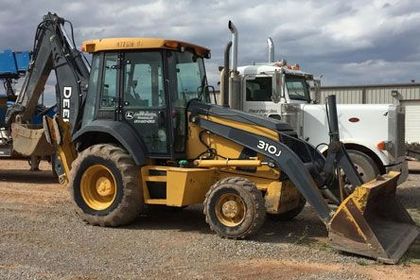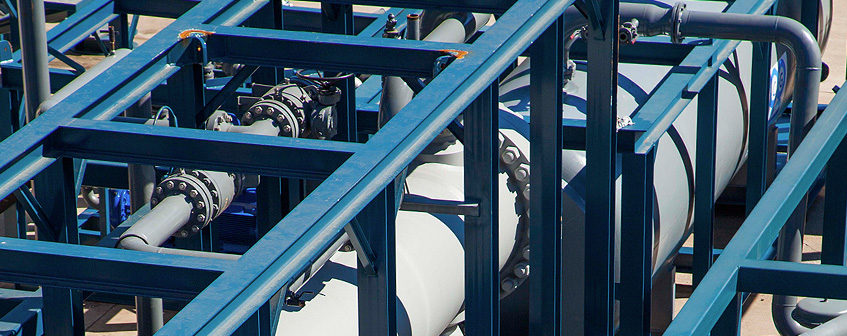Superior Oilfield Rentals oilfield: new solutions shaping pipeline work
A Comprehensive Overview to the Numerous Kinds Of Oil Field Equipment and Pipeline Equipment Available
The oil and gas sector counts heavily on customized devices for effective extraction and transportation. Numerous kinds of machinery, from drilling rigs to storage tanks, play important functions in this intricate procedure. Each item of tools serves unique features that add to total functional success. Understanding these components is necessary for anyone associated with the industry. As the industry progresses, so as well do the modern technologies that sustain it. What innovations are on the horizon?

Drilling Rigs: The Backbone of Oil Exploration
Drilling rigs serve as the crucial equipment in the domain of oil expedition, enabling firms to gain access to hydrocarbon reserves buried deep beneath the Earth's surface. These rigs can be found in various kinds, consisting of land rigs, offshore rigs, and mobile units, each created to run in particular atmospheres. Equipped with sophisticated modern technology, drilling rigs can penetrate geological developments with precision, making sure reliable resource extraction. The structural stability and functional capacities of these rigs are important, as they need to withstand extreme conditions and considerable stress. Moreover, the choice of a drilling rig affects the general task price and timeline, making it an essential consideration for oil firms looking for to optimize their exploration efforts and maximize efficiency in their operations.
Pumps: Vital for Liquid Activity
In the oil removal procedure, the function of pumps is substantial, assisting in the activity of liquids throughout various stages of manufacturing. Pumps are crucial for carrying petroleum, water, and various other liquids from underground tanks to the surface and after that via pipes to refineries. They are available in numerous types, consisting of centrifugal, favorable displacement, and submersible pumps, each offering details objectives based on the liquid qualities and functional needs. Centrifugal pumps are frequently utilized for their performance in high-flow applications, while favorable displacement pumps stand out in taking care of viscous liquids. The choice of pump influences total efficiency, functional security, and maintenance prices. Appropriate option and maintenance of pumps are vital for optimizing manufacturing and reducing downtime in oil area operations.
Valves: Controlling Circulation and Pressure

Valves play a vital function in taking care of the flow and stress of fluids within oil areas and pipelines. Various sorts of valves offer distinct applications, each made to fulfill certain functions basic for reliable operation - Superior Oilfield Rentals Texas. Comprehending the features and uses of these valves is crucial for maximizing system performance and safety
Kinds of Valves
Crucial parts in oil field procedures, valves play a critical role in controlling the circulation and pressure of liquids within pipes and equipment. Various kinds of shutoffs are made use of to meet the diverse demands of oil and gas manufacturing. Typical types include gate shutoffs, which supply a straight-line circulation and minimal stress decrease; globe valves, known for their strangling capacities; and round shutoffs, acknowledged for their quick on/off control. Additionally, check valves avoid backflow, while butterfly shutoffs use a lightweight service for regulating circulation. Each shutoff type is developed with particular materials and setups to withstand the rough conditions commonly found in oil areas, making certain dependability and performance in procedures. Recognizing these kinds is essential for effective system management.
Valve Applications and Features
While numerous kinds of valves serve distinct functions, their primary applications rotate around controlling circulation and pressure within oil and gas systems. Shutoffs such as entrance, world, and sphere shutoffs manage fluid motion, ensuring peak efficiency and safety. Gate shutoffs are typically utilized for on/off control, offering marginal circulation resistance. World shutoffs, on the various other hand, offer exact circulation regulation, making them appropriate for strangling applications. Sphere valves are favored for their quick operation and limited sealing capacities. In enhancement, stress alleviation shutoffs are important for stopping system overpressure, protecting devices honesty. Overall, the proper selection and application of valves improve functional performance, ensuring the trustworthy transportation of oil and gas through pipelines and processing facilities.
Compressors: Enhancing Gas Transport
Compressors play an important duty in the reliable transport of gas, ensuring that it moves efficiently through pipelines over lengthy distances. These tools increase the stress of gas, permitting it to conquer rubbing and altitude adjustments within the pipeline system. In addition, compressors facilitate the balancing of supply and demand, fitting changes in usage and production rates. Various kinds of compressors are employed in the industry, consisting of centrifugal, reciprocating, and rotating screw compressors, each offering distinct advantages based on the functional needs. Normal upkeep of these compressors is important to make best use of efficiency and decrease downtime, inevitably adding to a reliable gas transportation network. Their crucial feature highlights the value of compressors in the general oil and gas infrastructure.
Storage Tanks: Safe and Efficient Fluid Management
Reliable transportation of natural gas depends on various support group, among which is the appropriate management of tank. These storage tanks play an important role in safely having liquids, guaranteeing that functional effectiveness is kept while decreasing environmental risks. Created from resilient materials, they are designed to hold up against high stress and destructive elements. Properly sized and strategically located, storage containers assist in the smooth flow of all-natural gas and other fluids, preventing traffic jams in supply chains. Regular upkeep and monitoring are important to discover leakages or structural problems, promoting security and compliance with regulative criteria. Ultimately, the efficient management of storage space containers is important for the total integrity and dependability of the oil and gas sector's fluid handling systems.
Pipeline Solutions: Facilities for Transport
Pipeline systems work as the backbone of the oil and gas market, helping with the reliable transportation of hydrocarbons over vast distances. These systems are composed of numerous components, including pipelines, valves, pumps, and compressors, all carefully developed to guarantee smooth circulation. The materials utilized in pipeline building, often steel or high-density polyethylene, are selected for durability and resistance to deterioration. Pipeline networks can extend across land and water, connecting manufacturing websites to refineries and warehouse. Additionally, progressed innovation makes it possible for real-time surveillance of flow prices and pressure levels, enhancing functional efficiency. The calculated placement of these pipelines lessens environmental effect while optimizing source accessibility, thereby playing a crucial role in meeting power demands worldwide.
Security Equipment: Making Sure Worker and Environmental Defense
The operation of pipeline systems, while vital for power transport, likewise offers considerable security challenges for workers and the atmosphere. Security devices plays a significant role in reducing these threats. Individual protective devices (PPE) such as safety helmets, handwear covers, and non-slip footwear safeguards employees from physical dangers. In addition, gas discovery systems monitor for leaks, making sure that dangerous compounds do not position a danger to workers or the bordering environment. Emergency closure systems are crucial for quickly halting operations during a dilemma, stopping possible calamities. Spill control materials, including absorbents and barriers, are essential for minimizing ecological effect. In general, investing in comprehensive safety and security devices is crucial for keeping operational stability and securing both workers and the environment in the oil and gas market.

Frequently Asked Concerns
Exactly how Do I Choose the Right Oil Field Equipment for My Project?
Picking the appropriate oil area devices involves evaluating task specs, budget restraints, and functional needs. Take into consideration factors such as equipment reliability, compatibility with existing systems, and the supplier's online reputation to assure peak efficiency and safety and security.
What Are the Maintenance Requirements for Oil Field Equipment?
Upkeep demands for oil area devices include normal assessments, lubrication, and timely repairs. Operators needs to likewise abide by supplier guidelines, monitor performance metrics, and warranty conformity with safety laws to improve longevity and effectiveness.

Exactly How Can I Ensure Conformity With Environmental Regulations?
To guarantee compliance with environmental regulations, firms should perform regular audits, carry out best methods, buy training, preserve correct paperwork, and remain updated on regulation (Superior Oilfield pipeline equipment rentals). Cooperation with environmental firms can also improve adherence to guidelines
What Is the Average Life Expectancy of Pipeline Equipment?
The average lifespan of pipeline devices usually varies from 20 to half a century, depending on variables such as material quality, ecological problems, and maintenance practices. Regular evaluations can substantially influence long life and functional effectiveness.
How Do I Safely Transport Oil Field Equipment to Remote Locations?
Transporting oil field devices to remote areas requires cautious planning, including course analysis, protecting permits, using proper read more lorries, and guaranteeing safety protocols are complied with. Proper training and interaction among crews are necessary for effective transportation.